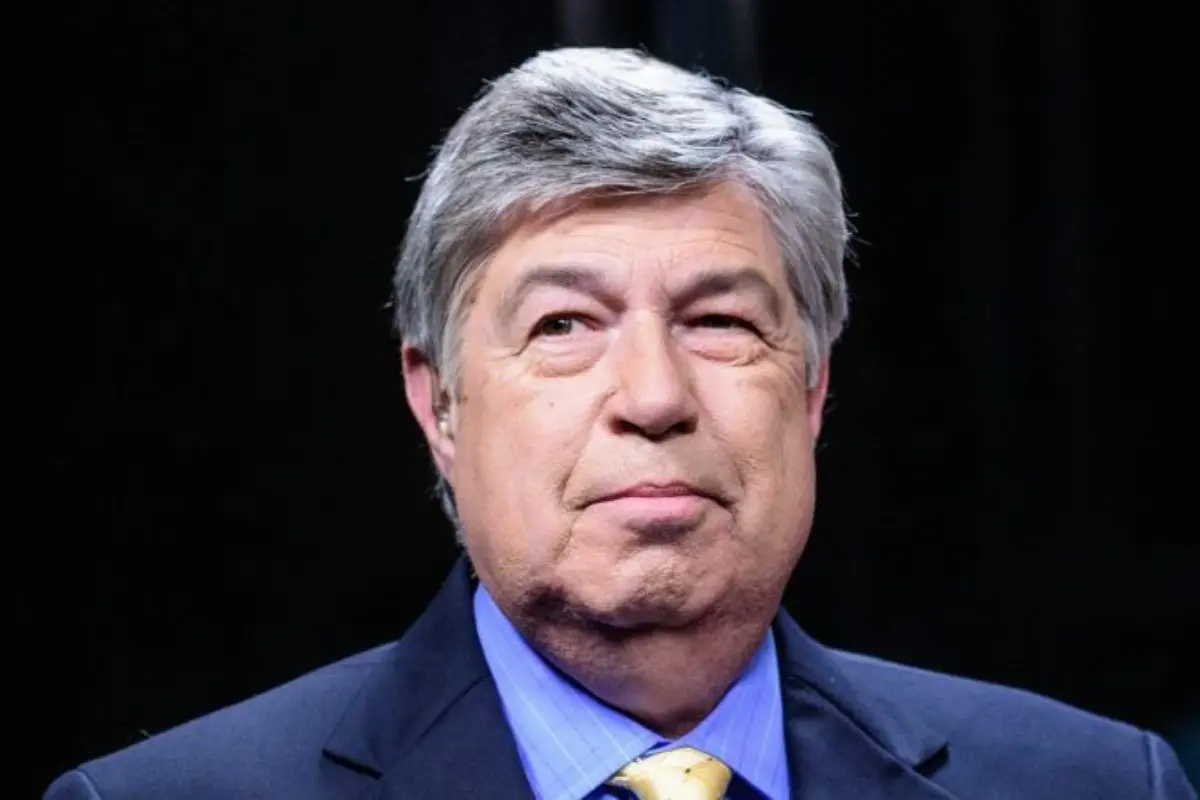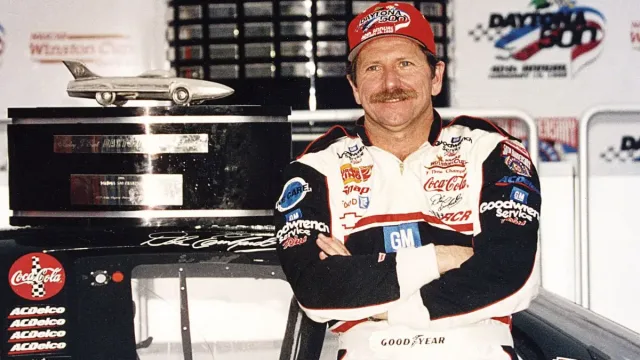A major moment in NASCAR history took place in 1998. Mike Joy made his booth debut at CBS during a race that changed many careers. On that day, Dale Earnhardt ended a long wait for a major win. With one call, Mike Joy captured the meaning of years of hard work and hope. His voice marked a fresh chapter for the sport. What happened that day still shapes how racing is remembered across the NASCAR world.
Key Highlights
- Mike Joy made his iconic debut in the CBS booth during the 1998 Daytona 500.
- Dale Earnhardt won the race, marking his first victory in 59 races.
- Joy’s memorable call was, “Finally! The most anticipated moment in racing.”
- This victory was a significant emotional moment for Earnhardt and his fans.
- Joy’s debut solidified him as a lasting voice in NASCAR broadcasting.
Mike Joy’s Iconic Booth Debut with Dale Earnhardt’s 1998 Daytona 500 Win
In the world of NASCAR broadcasting, few moments are as iconic as Mike Joy’s debut in the CBS booth during the 1998 Daytona 500. It was a day that would intertwine the fates of two legends: Joy and the formidable Dale Earnhardt.
As engines roared and the crowd’s anticipation reached fever pitch, Joy’s voice became the vessel through which millions experienced racing history. Dale Earnhardt, known as “The Intimidator,” had endured 20 years of Daytona 500 frustration.
“20 years of trying, 20 years of frustration, Dale Earnhardt will come to the caution to win the Daytona 500. Finally! The most anticipated moment in racing. If John Elway could win the Super Bowl, Dale Earnhardt said he could win the Daytona 500.” – Mike Joy from booth
This race marked a pivotal turning point as he triumphantly broke a 59-race winless streak, claiming his initial Daytona 500 victory and the coveted Harley J. Earl Trophy. Joy’s iconic call, “Finally! The most anticipated moment in racing,” captured the nature of Earnhardt’s perseverance and triumph.

Mike Joy’s Early Career Path and Break into Television Commentary
Mike Joy’s expedition into the world of television commentary began with a crucial opportunity in 1978. Initially, he joined the Motor Racing Network (MRN) as a racing publicity person for Daytona, thanks to Jim Foster’s support. This role allowed him to dip his feet into broadcasting during weekends.
“At the end of the ’78 season, Jackie was running MRN and wanted to bring me to Daytona to work with him. But unfortunately, with a small staff, he couldn’t add another person. So Jim Foster—our boss, and the VP of NASCAR and International Speedway Corp—said, ‘We’ll hire you as a stock car racing publicity person for Daytona. And on the weekends, you can go broadcast for MRN.’” – Mike Joy
His broadcasting odyssey accelerated when CBS reached out after he left Daytona, offering him a position as a pit reporter. This marked the inception of his long-standing association with CBS, where he spent 17 years mastering the intricacies of pit reporting.
“As soon as I left Daytona, CBS called. And they said, ‘We couldn’t talk to you while you were running the radio network. We couldn’t do that to NASCAR. But now that you’re not, we want you on our team.’ And I joined CBS in ’83 as a pit reporter and was in the pits there for 17 years.” – Mike Joy
In 1997, Joy’s career took a momentous turn when he succeeded Ken Squier as the anchor for CBS. His new position put him at the forefront during Dale Earnhardt’s historic Daytona 500 win.
“At the end of 1997, when Ken Squier stepped aside from anchoring on CBS, they moved me into the host role. They moved me into the anchoring seat. And of course, the first race I get to call is Dale Earnhardt’s Daytona 500 win. That’s the clip that resonates and follows me everywhere I go.” – Mike Joy
Mike Joy Reflects on the Current State of NASCAR’s Popularity
Although NASCAR once enjoyed immense popularity, it now faces substantial challenges in maintaining its relevance, particularly among younger audiences.
Mike Joy, a seasoned voice in NASCAR commentary, acknowledges this decline in interest, reminiscing about the sport’s heyday when it captivated Fortune 500 companies and fans alike. Joy points out that the “win on Sunday, sell on Monday” model has faded, signaling a shift in the sport’s commercial attraction.
“We have eighteen and twenty year olds coming into the Cup Series and making a mark. The fanbase is getting older. We’re not attracting a younger fanbase that we need to move this sport forward into the next decade.” – Mike Joy
He critiques NASCAR’s current leadership for their inability to capture the imagination of the younger demographic, suggesting that the sport lacks the charismatic figures akin to legends like Dale Earnhardt Sr. or Jeff Gordon.
In Joy’s view, this dearth of compelling personalities in the Cup series exacerbates the sport’s struggle to maintain its foothold in a rapidly evolving entertainment landscape.

The Future of NASCAR and Efforts to Engage Younger Fans
How will NASCAR adapt to capture the interest of a younger audience in a rapidly changing entertainment landscape?
With fresh talents like Carson Hocevar and Christopher Bell entering the Cup Series, the sport acknowledges the urgency to refresh its aging fanbase.
Despite these young drivers, NASCAR’s popularity among younger fans lags behind icons like Jeff Gordon.
To bridge this gap, NASCAR has initiated partnerships with streaming platforms such as Netflix and Amazon Prime Video, the latter integrated into NASCAR’s broadcast agreement.
These collaborations aim to emulate the success Formula 1 has achieved with American audiences, despite NASCAR’s domestic roots.
By leveraging digital platforms, NASCAR endeavors to improve its cultural relevance and connect with tech-savvy, younger viewers.
The coming years will be pivotal in determining whether these tactical efforts can effectively rejuvenate NASCAR’s standing among the next generation of fans, ensuring its longevity and vibrancy in the motorsports arena.

News in Brief: Dale Earnhardt 1998 Daytona 500
In reflecting on Mike Joy’s historic debut as a NASCAR broadcaster, it is clear that his path from humble beginnings to a renowned commentator has left an indelible mark on the sport. His memorable call during Dale Earnhardt’s emotional 1998 Daytona 500 victory remains iconic. As NASCAR evolves, Joy’s insights into its current state and efforts to captivate younger audiences highlight the sport’s ongoing commitment to growth and innovation, ensuring its legacy for future generations.
ALSO READ: Dale Earnhardt Jr. Recounts Dale Earnhardt Sr.’s Unexpected Reaction to Crash: “He Just Started Laughing”
